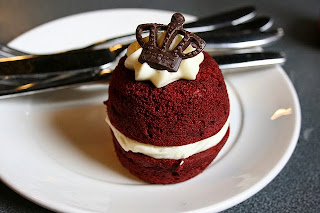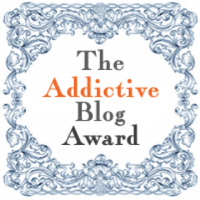Announcement: Today is the four year
anniversary of Cait’s lovely blog, Paper Fury. And if you haven’t already
checked it out, I recommend that you visit immediately. Like, what are you
still doing here?
I bet there are
hundreds of cancer/illness memoires chronicling poignant stories and touching
lessons garnered through hardship. So I realize it’s a bit cheesy to share with
you what I learned through the cold I had last week. But hey, it’s my blog and
I can do what I want.
Tuesday night I
could feel it coming on—those, ominous tell-tale symptoms. Tired and
frustrated, I threw a mini pity party (without cake, though, which was
depressing). I realized it was somewhat my fault because I know I don’t get as
much sleep as I should (why sleep when you could be getting stuff done, I ask
you?), but I had so much that I wanted to accomplish. Among other things, I had
books to read, classes to wrap up, and a novel to edit. (See, no time for sleep.)
And I’d been doing so well—up until that point, I don’t think I’d suffered any
sickness for maybe eight to twelve months. I was on a roll.
Come Wednesday
morning, despite my tight schedule, I knew I needed to relax and lie low, at
least for the next twenty-four hours. My brain felt thick and slow, like a
piano with molasses between the keys. It demanded rest. So after I finished last
week’s blog post, I lay in bed watching movies, reading books, and drinking far
too much coke—basically wasting precious hours of my short life span (yeah, this
is how my mind works—it’s not pretty in here).
In many ways,
if you ignore the fever and the aching limbs and the pounding headache, it was
an ideal vacation. I had time to nap, to catch up on reading other people’s
blogs, and to contemplate my existence (not that I don’t do that anyway). It
was the break I needed but wouldn’t let myself take until I had that final
push.
But it’s the
kind of thing that normally drives me nuts. I would rather be doing “important”
stuff. Even when I classify it as writing related, I still struggle to justify
reading for pleasure. I love reading, don’t get me wrong. Yet sometimes I feel
a little selfish claiming the alone time—the down time—I need. And the hard
task master in my brain yells at me that I need to write, Write, WRITE!
Basically, if what I’m doing won’t benefit someone or earn me money sooner or
later, then I feel guilty for “wasting” my time. So when my cold claimed almost
an entire week of writing, I got a little discouraged—not to mention antsy, as
I’m the sort of person who needs to write every day just to keep from going
insane.
I realize I
sound like a spoiled brat. I mean, seriously, I had a whole week to read and
laze around and make a nuisance of myself. Instead I’m like, “Oh goodness, I
have it so easy—how awful!” Feel free to smack me or throw rotten tomatoes at
my face.
Without trying
to sound like a lollypop or anything, I have decided that this cold was more of
a blessing than a curse (cue inspirational music). When I have a fever, I get
more emotional, and I’ve found that this is not always a bad thing, since I
tend to be as emotional as a piece of old leather. I can watch tragic movies
without batting an eyelash; I can read sad books without shedding a tear. My
appreciation for any given story is more objective than anything. I enjoy the
artistry and the rhythm and the depth, I really do—I can even get super excited.
I just don’t let these things touch me beyond a certain point.
Recently I’d
started noticing how involved some people get with the books they love—and how
vehement they can be about the books they hate. And it gave me pause. It wasn’t
until I got sick, though, that I realized exactly what I’ve been missing. As I
plowed through my towering pile of unread novels, I found myself more able to
connect with the characters, to sympathize with them, and to care about them. I
let myself feel instead of locking all powerful emotions away where they couldn’t
affect me.
Now that I’m on
the mend, I’ve resumed my normal editing routine. My brain is—mostly—back to
normal. So I may not cry when I read sad books—I have enough real stuff to cry about.
And I may never engage with the stories I love as much as others seem to. More
than anything, it’s a personality trait. As an introvert, I just don’t come out
of my shell like that. But I did start to understand and appreciate those who
do allow themselves to feel. And perhaps, over time, I will let myself loosen
up a little.
What I realized,
though, is that it’s not about changing, and it’s not about who’s doing it
right and who’s doing it wrong. Everyone reacts differently—to stories, to others,
to life. That’s okay. But as a writer, and as a human (what am I saying? I’m
totally Vulcan), it’s vital that I value others for their differences, as well
as their similarities. We have a lot to learn from each other.
So thank you to
all the people who aren’t ashamed to show how much they feel. You touched my
cold, dark heart.











